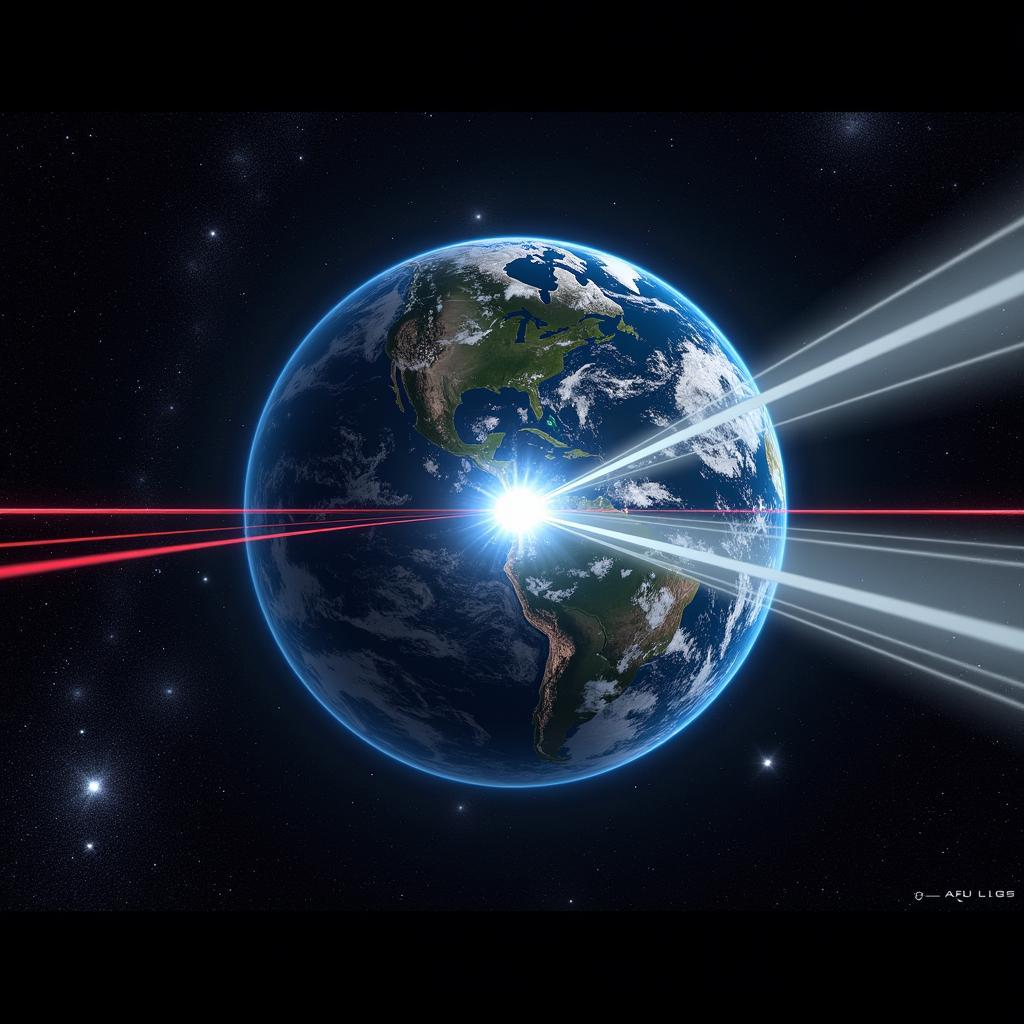The world of physics is a tapestry woven with known forces and hypothetical particles, and among the most intriguing of these is the graviton. This elusive particle, theorized to mediate the force of gravity, has captured the imaginations of scientists and laypersons alike. But what exactly is Graviton Research, and why is it so compelling?
Graviton research is the tireless pursuit of understanding gravity at its most fundamental level. Unlike the other fundamental forces, gravity has stubbornly resisted a complete integration into the standard model of particle physics. The graviton, if proven to exist, would be the missing link, bridging the gap between general relativity and quantum mechanics.
The Elusive Graviton: A Cosmic Puzzle
Imagine a universe where the very fabric of spacetime is a turbulent sea of quantum fluctuations. Within this chaotic dance of energy, particles are constantly popping in and out of existence. The graviton, according to some theories, is a ripple in this quantum foam, a messenger particle that transmits the force of gravity.
However, detecting a graviton is no easy feat. These particles are thought to interact incredibly weakly with matter, making them frustratingly difficult to pin down. Despite these challenges, scientists are pursuing several avenues of research, hoping to catch a glimpse of this elusive quarry.
The Search for Gravitational Waves: Echoes of Cosmic Cataclysms
One promising avenue of exploration is the study of gravitational waves. These ripples in spacetime, predicted by Einstein’s general relativity, are generated by some of the most violent events in the cosmos, such as the collisions of black holes or neutron stars.
 LIGO Detecting Gravitational Waves
LIGO Detecting Gravitational Waves
The detection of gravitational waves in 2015 by the Laser Interferometer Gravitational-Wave Observatory (LIGO) was a landmark achievement, opening a new window into the universe. While not a direct detection of gravitons, the study of gravitational waves could provide valuable insights into the nature of gravity and potentially reveal indirect evidence for the existence of gravitons.
“Gravitational waves are like whispers from the early universe, carrying information about the most energetic events imaginable,” explains Dr. Amelia Singh, a theoretical physicist specializing in quantum gravity. “By deciphering these whispers, we hope to unlock some of the universe’s most closely guarded secrets.”
The Quest for a Unified Theory: Unifying the Forces of Nature
The ultimate goal of graviton research is not just to detect this elusive particle but to weave it into a grand unified theory – a single framework that explains all the fundamental forces of nature. Such a theory would be a monumental achievement, representing the culmination of centuries of scientific inquiry.
While a complete unified theory remains elusive, string theory and loop quantum gravity have emerged as leading contenders, each offering a unique perspective on the nature of gravity and the potential role of gravitons.
The road ahead in graviton research is long and challenging, but the potential rewards are immeasurable. Each new discovery, each theoretical breakthrough, brings us closer to understanding the universe at its most fundamental level. The quest for the graviton is ultimately a quest to unravel the very fabric of reality itself.